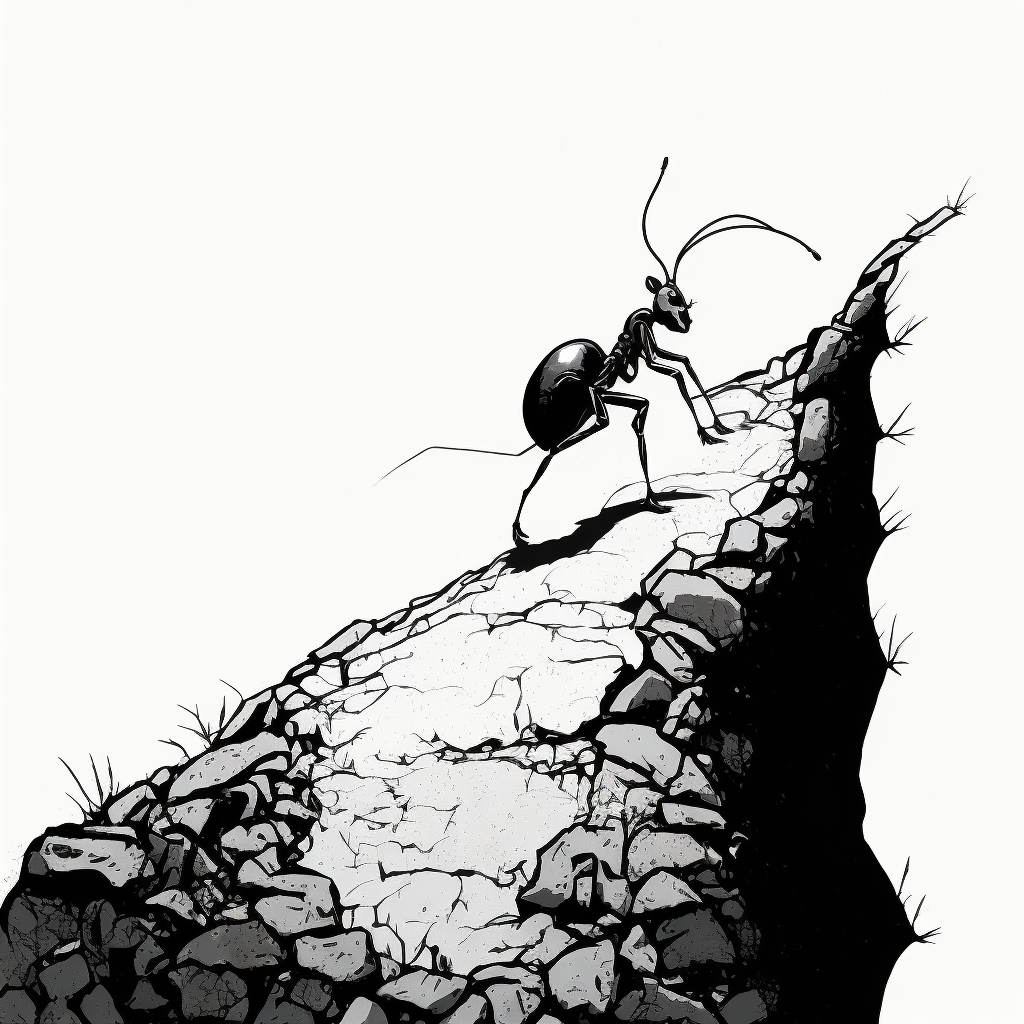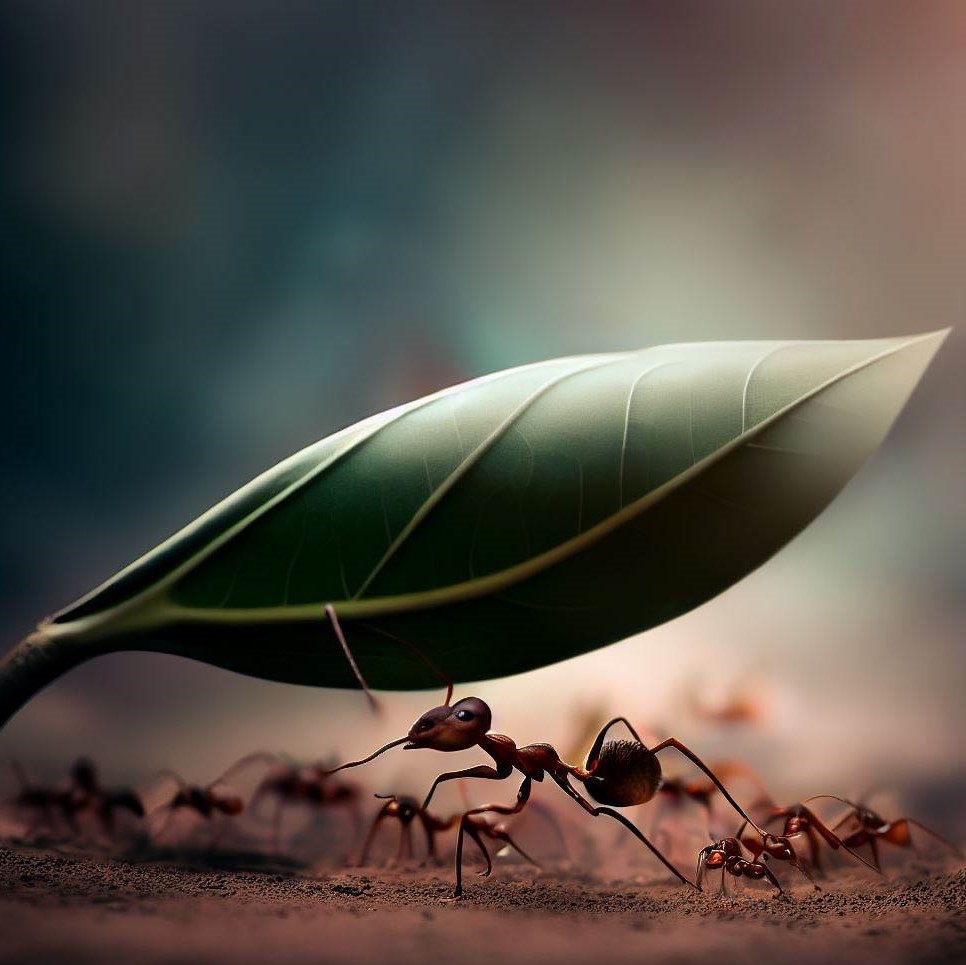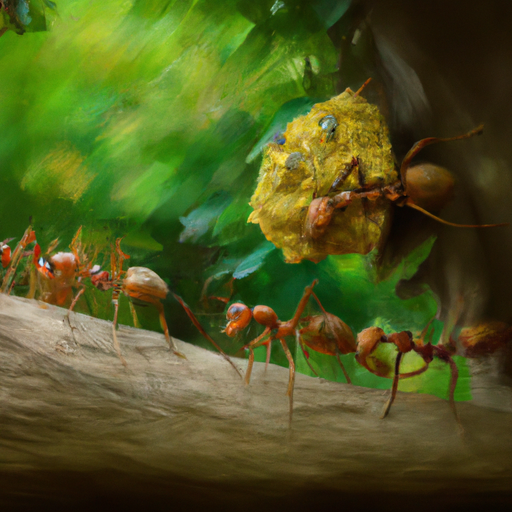Ant
Definition
Ant refers to a small insect, often with a sting, that usually lives in a complex social colony with one or more breeding queens. They are known for their industrious nature and complex social structures.
Parts of Speech
- Noun: ant
Pronunciation
- IPA Pronunciation
- American: /ænt/
- British: /ænt/
- Respelling
- American: ant
- British: ant
Etymology
The term "ant" is derived from the Old English word "ǣmette", which is related to the Old High German "āmeiza" and the Gothic "amaita". It has been in use in the English language since before the 12th century.
Derivatives
- Ant-like
- Ant-hill
- Ant-farm
- Anteater
- Ant colony
Synonyms
- Formicid
- Pismire
- Emme (archaic)
Antonyms
- None
Usage
"Ant" is a commonly used term in the English language, referring to a specific type of insect known for its social behavior and unique colony structures. It's often used in cultural and literary contexts to describe diligence, teamwork, or smallness.
Related Terms
- Colony
- Queen ant
- Worker ant
- Soldier ant
- Antenna
Detailed Definition
As a Noun
- Insect Species: A small insect belonging to the family Formicidae, known for its collective behavior, ability to carry objects many times its weight, and distinct social structure.
- Example: The picnic was soon overrun by ants attracted to the spilled soda.
- Metaphor for Diligence: Used metaphorically to describe someone with an industrious nature.
- Example: With the determination of an ant, she finished the project ahead of time.
Note: The term "ant" in English predominantly refers to the insect species. However, due to its pervasive presence in various cultures and literatures, it has taken on symbolic meanings, especially in relation to work ethic, organization, and diligence.
ant



🇨🇳 Mandarin
- 蚂蚁 (mǎyǐ)
- IPA: /ma˨˩.i˥/
- Respelling: mah-yee
🇮🇳 Hindi
- चींटी (cīṁṭī)
- IPA: /ʧiːn.t̪iː/
- Respelling: chee-ntee
🇪🇸 Spanish
- hormiga
- IPA: /orˈmiɣa/
- Respelling: or-mee-gah
🇫🇷 French
- fourmi
- IPA: /fuʁ.mi/
- Respelling: fur-mee
🇦🇪 Modern Standard Arabic
- نملة (namla)
- IPA: /ˈnam.la/
- Respelling: nam-lah
🇧🇩 Bengali
- পিপড়া (pipṛā)
- IPA: /pipɽa/
- Respelling: pee-prra
🇷🇺 Russian
- муравей (murav'ey)
- IPA: /mʊˈra.vʲej/
- Respelling: moo-ra-vyey
🇵🇹 Portuguese
- formiga
- IPA: /foʁˈmigɐ/
- Respelling: for-mee-gah
🇮🇩 Indonesian
- semut
- IPA: /səˈmut/
- Respelling: seh-moot
🇩🇪 German
- Ameise
- IPA: /ˈaː.maɪ̯zə/
- Respelling: ah-mice-uh
🇯🇵 Japanese
- 蟻 (ari)
- IPA: /a.ri/
- Respelling: ah-ree
🇻🇳 Vietnamese
- kiến
- IPA: /kiən˧˩/
- Respelling: keen
🇰🇷 Korean
- 개미 (gaemi)
- IPA: /ɡɛ.mi/
- Respelling: geh-mee
🇹🇷 Turkish
- karınca
- IPA: /kaːˈrɯnd͡ʒa/
- Respelling: kah-run-cha
🇵🇰 Urdu
- چیونٹی (cheonti)
- IPA: /ʧʰeː.ʋʈiː/
- Respelling: chay-oon-tee





